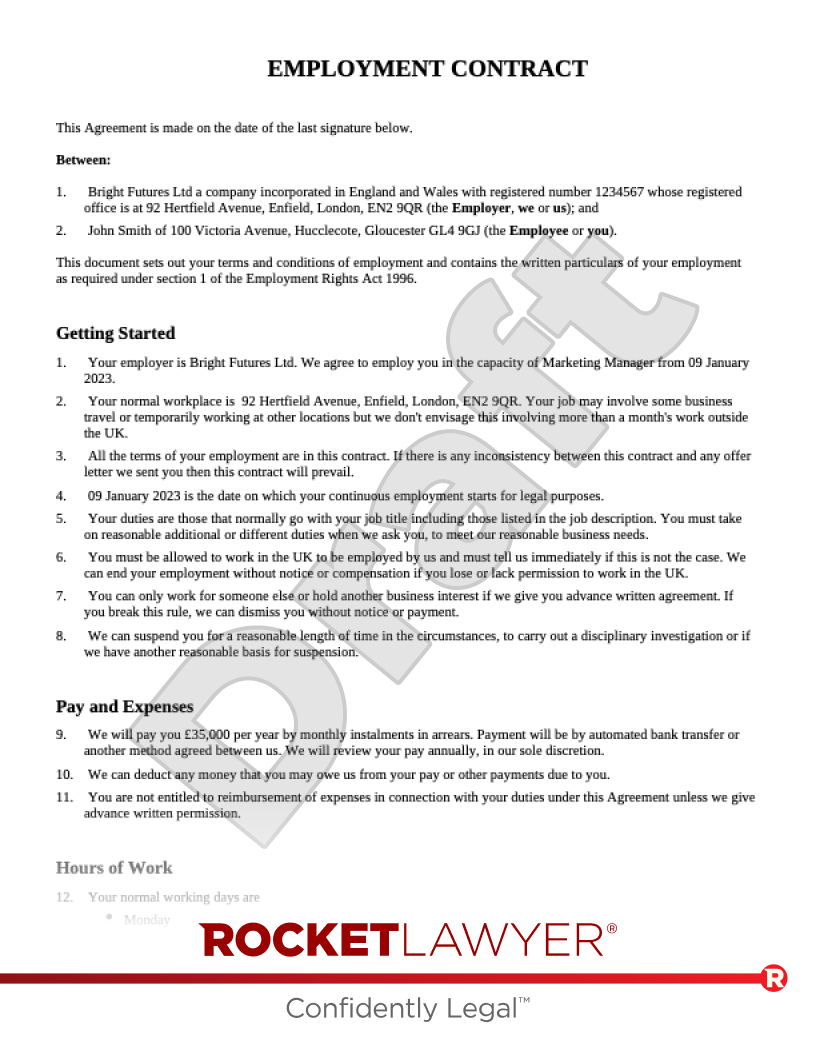Why should I implement an employee share scheme?
An employee share scheme (or ‘employee share option scheme’) may bring multiple benefits to employers. Schemes can help you to:
Attract and retain talent
By offering employees the opportunity to acquire shares (ie options) in your company, you’re offering them a chance to share company ownership. This makes your Job offers more attractive to prospective employees.
Sharing ownership can build a sense of loyalty amongst your employees. They may feel more involved in the success of your business and its mission and, consequently, it’s more likely that they will stay with your business for longer.
Increase productivity amongst employees
Employees who are also shareholders may be more engaged in their work, as they may deem themselves to be responsible for the company’s value. This can motivate them to work harder and to innovate to increase revenue, reduce costs, or maximise profitability.
Preserve cash within the company
Offering employees shares options instead of cash as compensation (ie as part of their remuneration package) or as bonuses can relieve your company’s cash flow pressure. Share options may also be more attractive to employees due to the tax benefits attached.
How do I decide if a share scheme is appropriate for my business?
Share option schemes may not be appropriate if you’re at an early stage of your business with only a few employees, as they can be costly and time-consuming to set up. You may also have to consult accountants and lawyers during the process, thereby incurring further expenses. In this case, it may be more economical to directly issue shares to your employees (ie rather than giving them an option to purchase shares).
However, if you’re planning to expand your business quickly in order to eventually go public, and you’ve already secured investments, a share scheme may be suitable. For a scheme to be effective, your employees must see your offer (ie executing the option) as advantageous. The prospect of floatation offers an opportunity for your employees to sell their shares to the public later, to hopefully make a profit. In such situations, an offer to purchase the company’s shares at a predefined price may be seen as a clever investment.
For information on how options differ from shares and why options can be more favourable, read Comparing share options with shares.
What should I consider when choosing a scheme?
When picking a scheme, you should consider:
-
your company’s eligibility for the schemes (eg a requirement for an Enterprise Management Incentives (EMI) scheme is that the company has less than 250 employees)
-
who you want to target your scheme at (eg whether you will only issue options to employees or if you’ll also offer them to other staff, such as consultants)
-
the conditions, tax benefits, and reporting requirements attached to HMRC-approved share schemes (eg HMRC must be informed within 92 days of an EMI option being granted)
-
the costs associated with setting up and maintaining a scheme
When considering costs, you should be mindful that most schemes will carry on for a few years. The expenses of running a scheme will likely include legal and accountancy fees, as you will have to submit forms to the HMRC and conduct valuations of your company as it grows.
What are the benefits and drawbacks of using an unapproved share scheme (USS)?
An unapproved scheme offers employees a chance to purchase shares in the same way as approved share schemes, except no HMRC approval is required.
The main advantage of using a USS is the flexibility it offers. Unlike the approved schemes, you have complete control over who you grant unapproved options to. You’re also free to determine the conditions attached to exercising the options. There are no limits on the value of options issued, no reporting requirements, and no predefined prices that need to be set.
With fewer regulatory requirements to meet, USSs tend to be relatively easy to implement. They are suitable for companies that can’t meet the criteria for approved schemes or those that are seeking to award a wider range of staff.
However, USSs are less tax efficient for employees as they offer no tax relief or exemptions. Option holders will usually have to pay income tax and national insurance contributions when they exercise their option to purchase shares, if the exercise price is lower than the market value of the shares. Employees will often sell some of their shares to meet the tax liability. In such instances, any gains they’ve made from the sale may be subject to capital gains tax (without entrepreneurs' relief).




